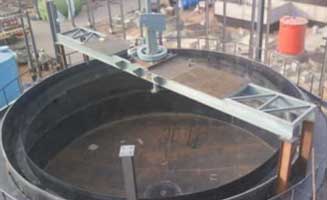Expansions: Sibur breaks ground on polymer catalysts plant in Russia; Saudi BCI Group to expand chlor-alkali capacity in Jubail

Russian petchem firm Sibur has commenced building a factory in Kazan for the production of catalysts for base polymers. The plant will have total of six catalyst production lines and will supply catalysts for onward production of polyethylene, polypropylene at several of Sibur’s petchem sites, with overall production exceeding 1,000 tonnes/year.
At the first stage, a production line for chromium catalysts will be built, with investments exceeding 11 billion rubles .
"This type of catalyst is used by Kazanorgsintez and ZapSibNeftekhim (both are Sibur companies), and it will be used at the Amur Gas Chemical Complex (a joint project of Sibur and China's Sinopec)," Sibur said in its statement.
At the second stage, the company plans to build a metallocene catalyst production line. These catalysts will be used in silica gel at Nizhnekamskneftekhim, which is also part of Sibur, in order to produce metallocene polyethylene.
The catalyst factory will be located in close proximity to Sibur's flagship research centre, which is due to be launched in 2026. Once implemented, the project will enable the special components to be developed and produced at one site. This will be the first site in Russia and CIS countries to produce all types of polymerisation catalysts required to make the most in-demand synthetic materials, polyethylene and polypropylene.
The construction and launch of the chromium catalyst production line is expected in 2027.
In other news, Thyssenkrupp Nucera has been awarded a contract by Saudi Arabia's Chemical Marketing and Distribution Company (CMDC) to expand its chlor-alkali plant in Jubail Industrial City. Part of the Basic Chemical Industries Company (BCI), CMDC selected Thyssenkrupp for its energy-efficient chlor-alkali membrane technology adhering to high environmental standards. The contract is valued at approximately EUR15 million and includes the supply, delivery, and provision of necessary equipment and engineering services.

Using the latest BM2.7 single-element generation from Thyssenkrupp nucera, chemical plants benefit from improved energy efficiency and performance through innovative, energy-saving design elements, the companies add.
Over the past five decades, BCI, headquartered in Dammam and one of the largest chemical companies in Saudi Arabia that has been listed on the Saudi Stock Exchange (TASI) since 2008, has been supplying a wide range of industries with organic and inorganic specialty chemicals and technical services.
The collaboration between BCI and Thyssenkrupp nucera spans more than ten years. In 2013, BCI signed its first contract with the predecessors of Thyssenkrupp nucera for the Dammam chlor-alkali plant, followed by another in 2017 for the first phase of the Jubail project.
The plant produces caustic soda, sodium hypochlorite, hydrochloric acid, and liquid chlorine, serving local markets, exports, and specialiSed needs, such as chlorine for water treatment.
"BCI is a highly successful chemical company – and by using our cutting-edge chlor-alkali membrane technology, they are strengthening their market position. This new contract in Jubail marks another milestone in our long and successful partnership with BCI in Saudi Arabia,” says Gerhard Henssen, CEO of Thyssenkrupp nucera Italy SRL. Photos Please contact us to inquire about photographs.
(PRA)SUBSCRIBE to Get the Latest Updates from PRA Click Here»









